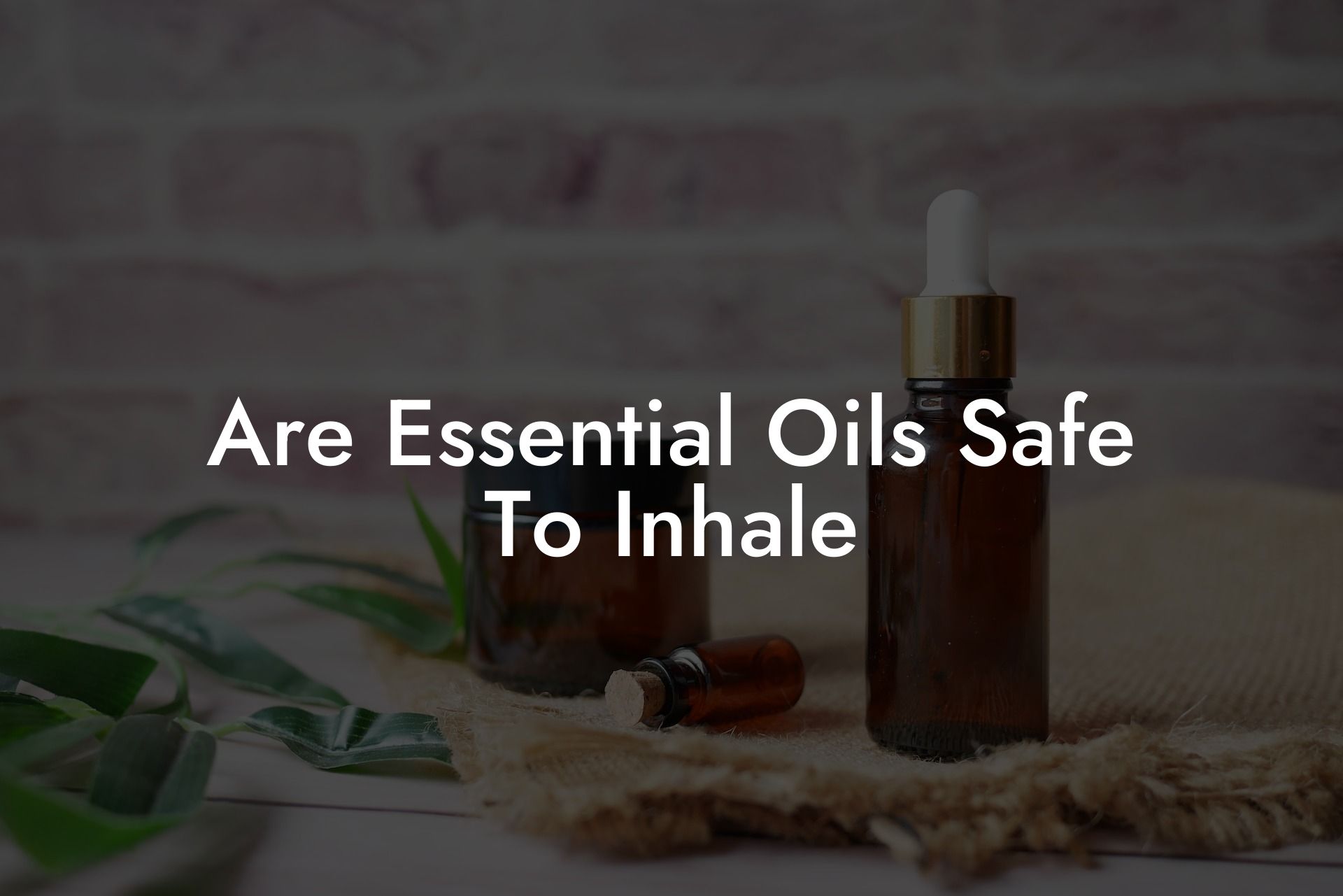Discover the world of essential oils and their aromatic advantages while addressing the vital question: Are essential oils safe to inhale? Learn about the importance of proper usage and the potential benefits of incorporating these scents in your daily life.
Table of Contents
Essential Oils and Aromatherapy
Essential oils are highly concentrated aromatic compounds extracted from various plant species. These oils have been used for centuries to improve overall wellbeing through the practice of aromatherapy. Aromatherapy harnesses the power of scent to affect mood, support the immune system, and promote a sense of balance in the body and mind.
Are Essential Oils Safe to Inhale?
In general, essential oils are safe to inhale when used correctly and in moderation. However, it is essential to understand each oil’s specific properties and potential risks before incorporating them into your routine.
Choose High-Quality Oils
Not all essential oils are created equal. Look for high-quality, 100% pure oils from reputable sources to ensure you are using safe and effective products. Avoid oils with added synthetic ingredients, as these may cause adverse reactions when inhaled.
Proper Dilution and Usage
- Never use undiluted essential oils. Always properly dilute with a carrier oil or an appropriate diffuser before inhalation.
- Essential oils should comprise no more than 1-2% of a blend for safe inhalation. This equates to approximately 6-12 drops of essential oil per ounce of carrier oil.
- Do not overuse essential oils, as overexposure can lead to sensitization or allergic reactions. Stick to a recommended usage frequency, allowing your body time to process and eliminate the compounds.
- Keep essential oils away from children and pets, as they may be more sensitive to certain oils and their effects.
Understanding Individual Oils
Some essential oils may have specific usage guidelines due to their unique chemical compositions. Always research individual oil properties and follow the suggested application methods to ensure safe and effective inhalation.
Consult a Professional
If you are new to essential oils or have a pre-existing medical condition, consult a certified aromatherapist or healthcare professional before using essential oils for inhalation. This advice is especially important for pregnant or breastfeeding women and those with respiratory issues, as some oils can be potentially harmful if not used correctly.
Are Essential Oils Safe To Inhale Example:
Jane has been feeling stressed at work and wants to explore aromatherapy as a natural solution to unwind. She decides to purchase a lavender essential oil and an ultrasonic diffuser to use at home. After researching proper dilution guidelines, Jane adds 4-6 drops of lavender oil to the diffuser’s water reservoir and turns it on while she relaxes in her living room. She enjoys the calming fragrance and notices that she feels more relaxed after 30 minutes of inhalation. Jane continues to use the lavender essential oil following appropriate guidelines to experience relaxation and stress relief.
Now that we have explored the safety of essential oils and proper inhalation practices, you are well-equipped to harness the power of aromatherapy for a more balanced and holistic lifestyle. If you enjoyed this article and found the information useful, please share it with friends and family who may be interested in essential oils. Also, don’t forget to explore other captivating guides on Oshu Oils and experience the artisanal difference by trying Oshu Oils’ range of essential oil products.





















